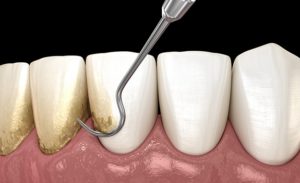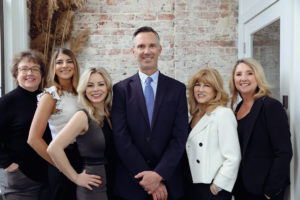HEALTH REQUIRES ACCOUNTABILITY
February 26, 2024
 Dental hygienists love it when they make suggestions to patients about home care and their dreams are answered when the patient returns 6 months later with noticeable improvement. It might be as simple as adding a good electric toothbrush or waterpik to the patient’s regimen. I would like to say that we are amazed daily by the fruits of our counseling, but that isn’t the case. For whatever reasons there are, changing routines is often difficult.
Dental hygienists love it when they make suggestions to patients about home care and their dreams are answered when the patient returns 6 months later with noticeable improvement. It might be as simple as adding a good electric toothbrush or waterpik to the patient’s regimen. I would like to say that we are amazed daily by the fruits of our counseling, but that isn’t the case. For whatever reasons there are, changing routines is often difficult.
Over 10 years ago I wrote a column about an article I saw in a magazine, which is apparently also a book, entitled “Change or Die”. What if you were given that choice? What if the doctor said you had to make tough changes in the way you think and act – or your time would end soon? Could you change? Here are the scientifically studied odds: nine to one. That’s nine to one against you. I don’t think we have made much headway on this over the past 10 years.
It’s a pretty common theme. As Americans, we’re dying at a rapid rate from five basic self-induced health problems. We eat too much. We drink too much. We smoke too much. We have too much stress. And, we don’t exercise enough. These five poor choices, manifested in scores of ailments, consume the vast majority of the nation’s healthcare budget. The article is an outpouring of concern from healthcare experts and doctors, all looking for a way to change the behavior of people who love their lifestyle so much that they literally die from it.
In a Johns Hopkins study a while back, 9 of 10 heart surgery patients chose to return to their unhealthy lifestyle, rather than make the changes needed to live longer. Only a few are convinced by their doctors to make radical daily changes. One of the more successful doctors with this is Dr. Dean Ornish, founder of the Preventive Medicine Research Institute. He says NO to meat, fatty dairy products, alcohol and oil. His vegetarian diet is low-fat, high-maintenance and strict. And, it has been shown to reverse heart disease and other factors in patients who were destined for quadruple bypasses – or worse, eternal sleep.
When 90% of patients are back to their old tricks within weeks of open-heart surgery, his program is the one making a difference. How does he do it? Well, it’s easy, really. Dr. Ornish coaches his patients to make changes strictly for the benefit of making them. Instead of telling them they must change or face death, he encourages them to change so that they can enjoy the endless beauty of living. With dedicated support, three-quarters of his patients are still going strong three years into their drastic lifestyle shift. I’m sure it is deeply gratifying to know that it only takes words said a certain way to make a true change in someone’s life.
Why is it so difficult to get people to change? Well, it depends. You have to be sick and tired of being sick and tired, usually, before you’ll make the leap and let go of whatever the resistance is to change. For many, doing more preventively never happens. We wait for chest pain to strike or a toothache to occur before seeking help to solve our crisis problem. Then we hope, and many times expect, that our problem can be solved easily and not too much will have to change to prevent it from happening again.
Dr. Ornish would tell you the change must be profound. He would tell you to never have another cheeseburger. Your hygienist would say you need to follow a new strict homecare routine, radically different than what you currently do. Making changes like these has to mean more to you than the change itself. You must be invested in improving the quality of your life.
Dr. St. Clair maintains a private dental practice in Rowley dedicated to health-centered family dentistry. He has a special interest in treating snoring, sleep apnea and TMJ problems. If there are certain topics you would like to see written about or questions you have please email them to him at jpstclair@stclairdmd.com
IT’S JUST A WORD
February 15, 2024
 When we ask for a Kleenex or a Ziploc we may not necessarily get that brand, but we know we will get a tissue or a sealable plastic bag. It is always interesting to me hearing the different things people say in the dental office that seem to be “standard” among the general population.
When we ask for a Kleenex or a Ziploc we may not necessarily get that brand, but we know we will get a tissue or a sealable plastic bag. It is always interesting to me hearing the different things people say in the dental office that seem to be “standard” among the general population.
For example, most people use the term “Novocain”. Even dentists, including myself, use this term daily to describe the local anesthetic used to anesthetize or “numb” teeth before they are worked on. Novocain, apparently still available for purchase, has not been used in dentistry for probably 100 years, but we still use the term because everyone seems to know what we mean. We may say “Novocain” but that is not what we are writing in your medical record.
Another term that is commonly used by patients and those in the dental office is “cleaning”. This term is a poor choice of words to accurately describe the service that a hygienist performs. The problem with this word is that it downplays the actual procedure. “I need to cancel my cleaning appointment. Oh, you don’t have anything for me for 2 months? That’s okay, it’s just a cleaning”, is commonly heard in the dental office.
We say “cleaning” because it’s easier than saying, “We’ll see you Monday, Mary, for your periodontal maintenance and exam which includes a full periodontal exam, scaling and polishing of all surfaces of the teeth, full dental exam, oral cancer screening and an update from the doctor to review this information with you.” If you have, or should have your teeth cleaned every 3-6 months, the word “cleaning” to describe the service being performed is very inaccurate.
The term “crown”, or “cap” as some people use, usually make patients cringe. “I need a crown? I thought I just needed the filling replaced”, is common to hear. Patients tend to think that they are losing their tooth if they need a crown. While this is not the case, what if the dentist said that you need an onlay? Have you heard that term?
I read an article in the paper recently entitled, “Are Crowns Made in a Day Worth the No Wait?” This article describes some of the uses of CAD/CAM (computer-aided-design / computer-aided milling) technology to produce “crowns” for teeth the same day in the dental office. The technology is used in about 10-15% of dental offices.
In the article mentioned above, there was not one mention of the term onlay. An onlay, or partial crown, for lack of a better description, is one of the major advantages of CAD/CAM technology. It often allows the dentist to perform more minimally invasive dentistry for specific teeth.
The primary focus of the article was to point out that these CAD/CAM crowns may not be the best choice for patients or dentists if used on front teeth. The argument is that a dental ceramist in a dental laboratory can make “prettier” teeth than a dentist can in a dental office. While this may be true for some circumstances, the column downplayed some of the major advantages I see with the use of this technology. We say “crown” but it really means, “an indirect, bonded, protective restoration.” A “crown” may cover the whole tooth or just part of the tooth.
The materials we use and the services we perform in the dental office are constantly changing. Let the dentist and dental hygienists use their knowledge, skills and technology to do great things to care for your dental health. Don’t get hung-up on words. Ask questions! Keep an open mind and become an active participant in your dental health.
Dr. St. Clair maintains a private dental practice in Rowley dedicated to health-centered family dentistry. He has a special interest in treating snoring, sleep apnea and TMJ problems. If there are certain topics you would like to see written about or questions you have please email them to him at jpstclair@stclairdmd.com
NEWER IS NOT ALWAYS BETTER
February 5, 2024
 There have been lots of changes over time in the materials used to restore teeth. Many of the materials I use today were not in existence when I started practice in the 1990’s. The most significant changes have been to materials that are tooth-colored.
There have been lots of changes over time in the materials used to restore teeth. Many of the materials I use today were not in existence when I started practice in the 1990’s. The most significant changes have been to materials that are tooth-colored.
There are very few patients who ask for gold or silver fillings any more. And, while some of these newer materials are tooth colored, there are factors which need to be considered in determining what material is appropriate for each individual situation. The longest lasting restorations I have ever seen are gold done by dentists who really knew the art of working with gold.
As I said last week – The best dentistry is No dentistry. Prevention of decay and other factors that require teeth to be restored is the best defense to not needing restorative dental work. Keeping up with maintenance cleaning appointments and listening to your dental team’s recommendations regarding diet, homecare and other forms of prevention, such as nightguard use, is key to avoiding many dental problems.
One of my favorite quotes in dentistry comes from a pioneer dentist who was killed in a plane crash back in the 1970’s named Bob Barkley. Aside from being the one who said “The best dentistry is No dentistry”, he also said, “The goal of dentistry is to make the patient worse at the slowest possible rate”. I think about this quote all the time when making recommendations and treating patients. Sometimes it leads me to recommend more extensive treatment, and other times it leads me to not recommend any treatment at all, even despite apparent need. It really depends on many factors.
Dr. Barkley also coined the phrase “co-diagnosis” which refers to the patient taking an active role in their dental health. It is the role of the dentist to not only educate the patient on their specific situation and different options for care, but to also extract (pun intended) from the patient their goals for their dental health. It is so important to think beyond the immediate fix sometimes. Taking the time to talk to patients about why things are happening, and about their choices for prevention and treatment, allows patients to become active participants in their health.
There are barriers to this model. One of the biggest issues facing both dentists and patients today is the role of patient’s dental benefits. The trend is less costly plans with fewer benefits and restrictions on providers. To get the maximum (or sometimes any) benefit, the patient must seek a dentist who is “in-network” with a particular plan. I would encourage staying away from any dental plan that forces you to see specific providers. You should always have a choice.
My simple suggestion is to take a more active role in your own dental health. Think forward and ask your dentist or dental hygienist about things that can make your situation worse at the slowest possible rate. You very well may be doing fine, or just need a couple of tweaks to your home care regimen. Find a dental team that listens to your concerns and takes the time necessary to establish a plan that makes sense and you are on board with.
Dr. St. Clair maintains a private dental practice in Rowley dedicated to health-centered family dentistry. He has a special interest in treating snoring, sleep apnea and TMJ problems. If there are certain topics you would like to see written about or questions you have please email them to him at jpstclair@stclairdmd.com







